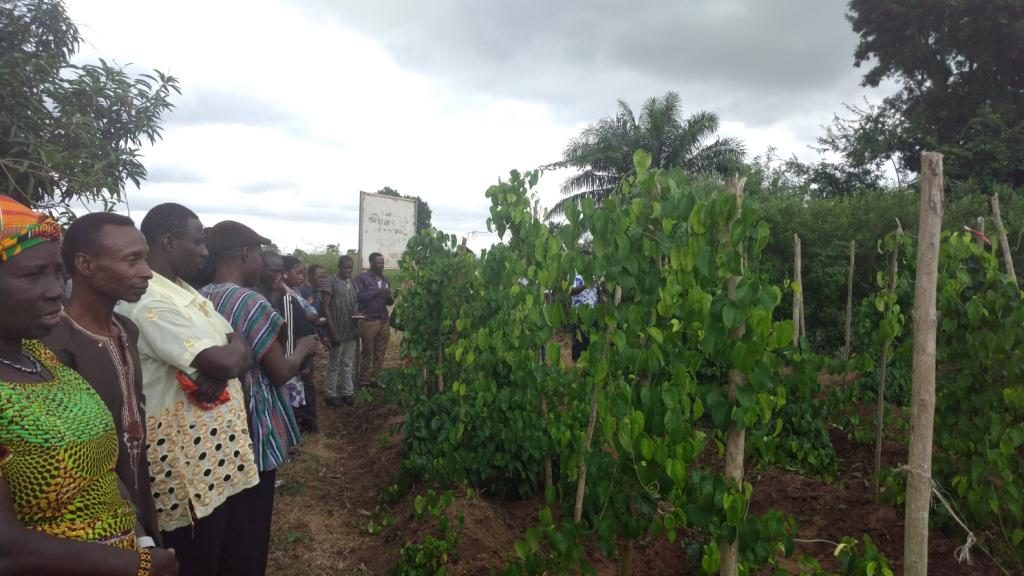
By Kofi Adu Domfeh
At age 55, Beatrice Asantewaa has been actively farming yam, cassava, cocoyam, maize, plantain and groundnuts for over 20 years.
She is fulfilled at tilling the soil to produce food to feed her family and also earns good income to manage her other economic needs.
“I get enough produce to cater for my family and sell others to get money for other things,” she said.
Her major challenge, perhaps, is access to market to ease the disposal of her harvests.
In the future, however, Beatrice will face a bigger challenge of accessing fertile land to grow her crops, as opportunities to allow lands to fallow dwindle.
“Virgin lands are no longer available because of climate change, charcoal burning and indiscriminate tree felling,” noted Henry Azot, a Chief Technical Officer at the Ministry of Food and Agriculture (MOFA).
He says critical interventions will be needed to address the challenge of declining soil fertility and scarcity of virgin lands for use in yam cultivation.
Research scientists are exploring solutions to help farmers overcome this challenge by introducing farmers to the Pigeon Pea–Yam Cropping System for improved yam productivity.
The new planting system, implemented by the Crops Research Institute (CRI) of the Council for Scientific and Industrial Research (CSIR) and partners, has been identified as sustainable for yam production in the face of depleting soils and climate change.
Research scientist on the project, Eric Owusu Danquah, says the technology also address staking which is crucial in yam production.
“This is very important as it sustains the soil nutrient. It also helps in climate change because farmers don’t clear places on yearly basis; they stay on a particular place continuously for a longer period. We are saving the farmers from cutting down trees to use as stake which also help in carbon sequestration,” he explained.
The pigeon pea is used as allays with the yams planted in-between the ridges. The system also involves placing the pigeon pea at the border zone which are cut and used at stakes – the direct access to stakes saves the farmers from the labour, transportation and cost of buying stakes.
The pigeon pea conserves moisture and fixes atmospheric nitrogen. Its leaves or biomass, which are cut and spread before land preparation, also add to the soil carbon and nutrient stock in sustaining soil fertility.
By 2020, the researchers are hoping to come out with a technology that will be appreciated by farmers.
Opanyin Adu is among yam farmers from the Ashanti and Brong Ahafo regions targeted for the on-station field trials of the new cropping system at Aframso in the Ejura-Sekyeredumase District of the Ashanti region.
He has been farming the past 30 years, long enough to appreciate the dwindling soil nutrition.
Without the application of fertilizer, Opanyin Adu used to harvest good yields from his yam farm though he planted in mounds.
“Now the land has lost its potency, so you need to apply fertilizer if you are to attain good yield,” he observed.
Opanyin is now looking forward to the outcome of the Pigeon pea–yam cropping system as a productive alternative to his conventional planting method.
“We like the growth of the yam and believe it will be beneficial for us to listen to the researchers. I will like to experiment the new system by farming alongside my conventional system to appreciate the difference,” he said.










